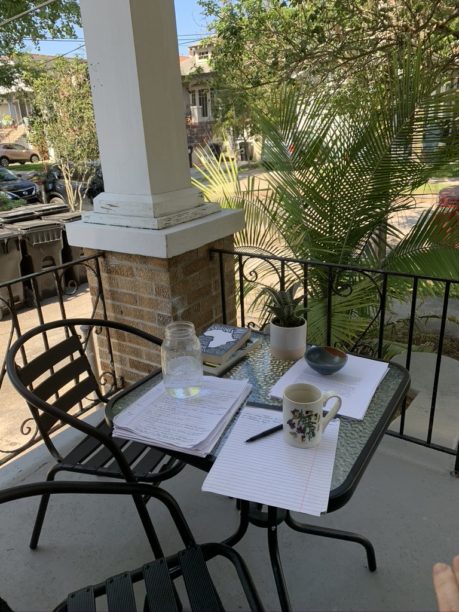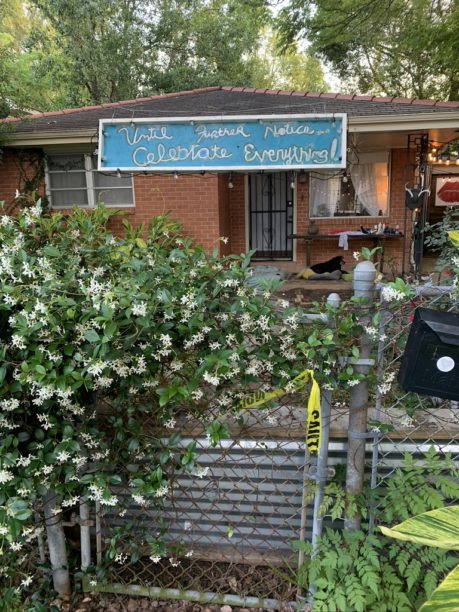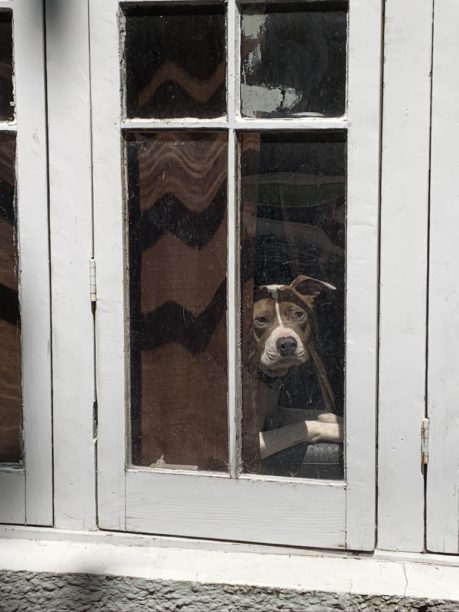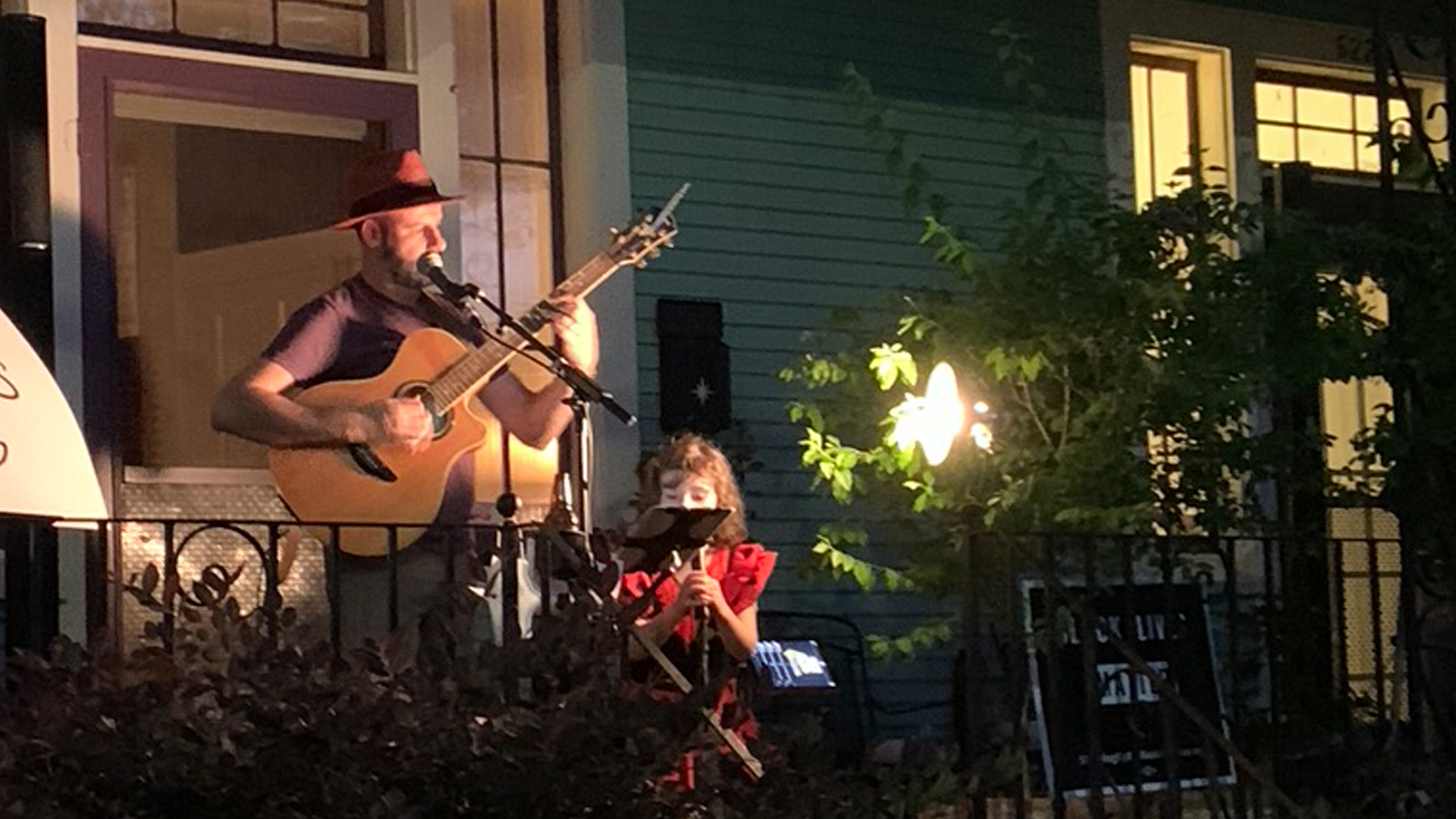Hey Kate, the email subject line read. No one really calls me Kate anymore, unless I ask them to.
I know this is totally random, but I’ve been thinking about you and wanted to see how you’re doing. It took me awhile but I left that stupid cultish church I grew up in.
Jennifer had been my best friend in middle school. We hadn’t talked in nearly a decade. I had tried a few times to search for her, but in vain; as far as I could tell, she wasn’t on any social media. Annual Christmas cards from her parents had reported on Jennifer as if she were the weather: she got married, she studied nuclear engineering, she no longer lived in Massachusetts.
Jennifer’s family belonged to a church with no name or denomination—something unimaginable to my Episcopalian-raised, Catholic school-going self. She couldn’t always hang out, because she had church commitments multiple times a week. When she’d come over to my house, she’d tell her parents we were studying.
She was a sheltered only child, often baffled by the wild things my parents allowed me to do, like watch Flavor of Love on VH1, or skip church if I didn’t feel like going. I was a youngest child and accustomed to leniency. Both of my parents worked. My afternoons consisted of stretches of unsupervised time where I would make myself grilled cheese sandwiches, work on my MySpace profile, and wander around the nearby strip malls to see what I could afford with the clump of dollar bills I had scraped together—a Jamba Juice smoothie, or a YA novel set in a dystopian future, with a heroine recruited into the underground resistance she’d one day lead.
Jennifer and I wanted to be accomplished and independent. We were going places. We were “smart girls” but also I think we both were prone to loneliness; I wasn’t an only child, but my sisters were at least a decade older than I and lived far away. To aspire to independence felt like vanquishing loneliness, transforming it into something noble and admirable.
As we grew out of our gangly puberty, Jennifer started wearing longer skirts and plain, boxy shirts. Her parents withdrew her from the public high school and enrolled her in a small Christian school associated with her church. We no longer had the excuse of “studying” together. Our conversations petered out, and eventually we lost touch.
“The analogy the church would use is that we are on the table and the rest of the world is on the floor,” Jennifer told me, when we finally connected over the phone after a few emails. She sounded exactly the same way as she did in middle school: jokingly frank and kind of a know-it-all. “It’s really hard to pull someone up onto the table, but it’s very easy for someone to pull you down onto the floor. I was warned that if you and I spent too much time together, you’d pull me down onto the floor, but I wouldn’t succeed in pulling you up onto the table.”
As she told me this, I was literally lying on the floor—on a yoga mat, trying to correct my Quasimodo posture from a day spent hunched over my laptop. I glanced over at the dining room table. The floor seemed like a fine place to be.
Jennifer said the hardest part about leaving the church was losing everyone she knew; she was now living by herself in Los Alamos, a town of about 10,000 people. The social isolation of the pandemic did not feel like a meaningful departure from her life before, she confessed.
I also felt alone; I feel alone. I live alone and work alone, mostly, as I have for almost four years; in later phone calls, I told Jennifer these things. But not in that moment.

Six months ago, I moved to New Orleans by myself with a U-Haul full of books and no plan. I had just finished traveling for six months after quitting a town I loved in a fit of independence. I wanted to remember the bravery I once felt.
Right after college, I moved to Lagos, where I knew no one and had no day-to-day work beyond the projects I manufactured for myself. I felt like I might as well have been living on Mars. Moving somewhere by myself made me feel accomplished and independent. I felt like middle-school me would be satisfied. But the independence didn’t feel like some conquering of loneliness, as I’d hoped it would. And even when I could talk to people elsewhere in the world, it felt disjointed: I was wasting away in the afternoon heat, they were just waking up to a chilly morning. I was getting ready to go to bed, they were still at work.
So I spent a lot of time talking to myself. Every day, I’d craft some narrative of daring and adventure: Today, I will explore the grocery store and examine the mysterious snacks. Tomorrow, I will attempt public transportation and ask for directions. Absent the conventional momentum that had defined my life up until that point, I wove and unwove a story for myself about who I was and what exactly I was trying to do.
Years later—now, in social isolation—I feel an eerie déjà vu: I’m working familiar muscles from those first months in Lagos. I make lists of foods I’ve eaten and foods I plan to eat, of people I ought to call and schools I should maybe apply to, of stories to report, of the things I will do during isolation, of the things I will do once it is over. I create arbitrary dares for myself: to catch the cockroach near the trash can without squeamishness or hesitation, to build some shelves and fill an empty wall in my kitchen, to not ask for help, to just do it myself. At night I unravel the day, spooling it into thread for the next.
As the days and weeks go by in lockdown, I feel less like a human and more like a tangle of algorithms shooting through cyberspace. Statuses and tweets and stories crash through me like trees falling in a forest of falling trees.
I miss hugging people and being hugged. I miss eye contact. I long to cook meals and have meals cooked for me. I want someone else to offer to do the dishes and to do the dishes for someone else. It’s exhausting to be the sole caregiver of myself.
I text my uncle who lives by himself in Casper, Wyoming. I ask how he is. “Bored, boring, nothingness… except for the 8pm howling.” He tells me that across the state, people go outside to howl every day at 8pm. He’s a recovering addict and social worker who teaches addiction studies at the community college. His students ask him for a howling break in the middle of (virtual) class and he obliges.
“I don’t howl,” he says. “I stand outside and yell, ‘I’M MAD AS HELL AND I’M NOT GOING TO TAKE IT ANYMORE!'”
Maybe it would do me good if I stood outside and yelled that at 8pm, I tell him.
A few years ago, we gathered on the grass of my uncle’s backyard to watch a total solar eclipse. It was like a slow motion blink as crescents of light waned into shadow. The dogs in the neighborhood went crazy. So much howling. He joked that maybe it was the end of the world.
The next morning I was tasked to go pick up donuts for the whole family: cream-filled, glazed, chocolate-frosted, a few cake with sprinkles, French twists. At the shop, an old man leaned over his styrofoam coffee cup and asked me in a hoarse whisper, “Was it me or was that whole eclipse thing kind of scary?” It was definitely scary, I assured him.
My mentor’s wife died a few months ago and I’ve been worried about him, so I phoned him. I also wanted him to tell me what to do with my life. We traded opinions about what we’d been watching on Netflix, agreeing that Unorthodox is affecting and Tiger King is morally questionable.
He didn’t tell me what to do with my life, other than offer obliquely: “When it comes to fight or flight, I’ve always been partial to flight.”
I want to fight. But I don’t really know what fighting looks like right now. I donate. I read the necessary journalism and insist on “facts.” I shelter in place. I wear a mask in public. I keep my distance. I don’t really like doing any of it.

I live near a bayou, a public park and a community college, just a few miles up from the French Quarter. It is a neighborhood of porches, like much of this city. My porch has become a threshold to the social world outside. As transplant to the South, I always saw porches as lovely vestiges of the past; now I see them as a critical organ in the life of my neighborhood.
I began my day by opening all of my windows and my front door, and drank my coffee while sitting on my front steps, listening to the gaggle of birds conversing in the trees. I waved at the dogs and their owners who walked by, and begrudgingly petted the neighborhood cat, Mia, who has figured out how to open my screen door and make herself at home on my couch.
Neighbors sit and smoke and banter and play music and call out from their porches. On any given evening, I can stop by four or five porches, greeted by people unknown to me B.P. (Before Pandemic), now friends in this shared experience. We share advice and (sanitized) provisions, like rolls of toilet paper, canned beans, a hammer to help me build my shelves. We confess that we feel stir crazy. We bum cigarettes, even though we know it’s dangerous. Striking a lighter may be the most intimate contact of my day. It makes me feel less alone.
One consequence of this pandemic is a deep, abiding love for my neighbors, I thought one night while walking around my neighborhood with a beer. I don’t feel embarrassed about having corny thoughts like that when I’m tipsy.

I used to believe that the secret of love was compatibility. You meet a lot of people in your life, winnowing down to the ones who match you best: maybe they read the same books and like the same music and restaurants, and make similar jokes about the events of the day. Now I think the secret of love is loving the people in front of you: the ornery sibling, the overly nervous neighbor or the cat who barges through the door.
So what is it, to fight? Maybe it is to witness, to care, to say things don’t have to keep on being the way they are. We don’t have to keep feeling alone. In fact, we are not alone.
I picked up the phone and called Jennifer. Hey Kate, she answered. It’s so nice to hear from you.






